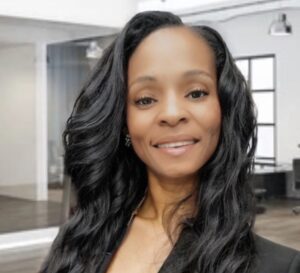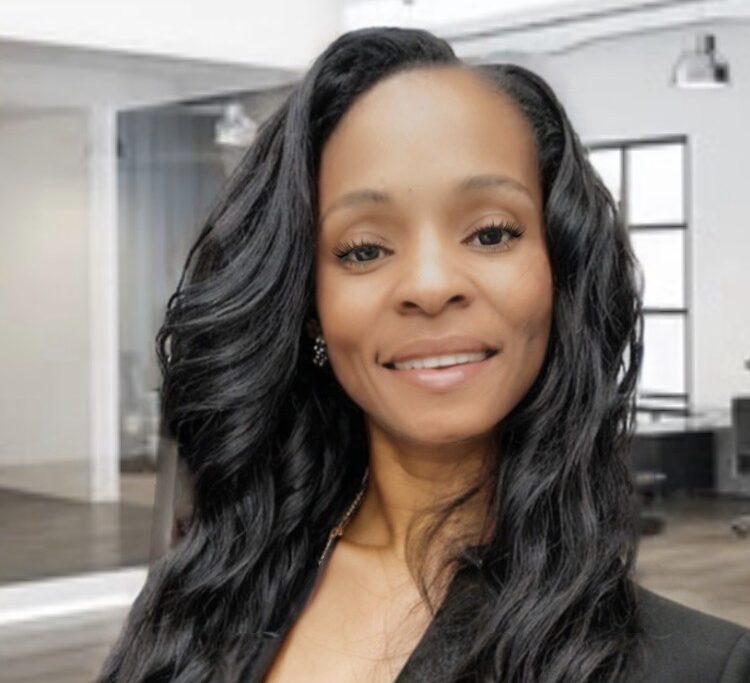 From sealing her first business deal at 12 to launching her 11th venture, R.M. Easterly isn’t just building startups—she’s building systems that restore dignity, unlock access, and shift culture.
From sealing her first business deal at 12 to launching her 11th venture, R.M. Easterly isn’t just building startups—she’s building systems that restore dignity, unlock access, and shift culture.
If there’s one word that captures R.M. Easterly, it’s uncompromising. Not in the abrasive sense, but in the way she shows up to solve problems no one else is solving. The kind of problems that hide in plain sight. The kind that affect real people in real ways.
With a career that spans 11 companies and seven exits, Easterly’s track record alone demands attention. But it’s her process—the way she builds—that truly sets her apart.
“I don’t build because I want to be a founder,” she says. “I build because something needs to exist that doesn’t yet.”
Her latest company, Thyim, is proof that she walks the walk. But before diving into what she’s doing now, it’s worth understanding where she comes from—and how her career has been less about chasing opportunity and more about answering urgency.
A Business Deal at 12—and the Grit Never Let Up
 Unlike most startup stories that start with a pitch deck, Easterly’s started with a deal closed at 12 years old. It wasn’t a class project or a lemonade stand. It was a real business transaction—and the first of many that would sharpen her eye for unmet needs.
Unlike most startup stories that start with a pitch deck, Easterly’s started with a deal closed at 12 years old. It wasn’t a class project or a lemonade stand. It was a real business transaction—and the first of many that would sharpen her eye for unmet needs.
Throughout her teens and twenties, she launched company after company. Not all succeeded—but all taught her lessons about people, pain points and how to move through chaos and bring something clear and useful out the other side.
Over time, Easterly developed a reputation not just as a builder, but as a systems thinker. A founder who could see ten steps ahead, while staying grounded in the day-to-day lives of the people she was building for.
That rare combination, visionary yet deeply practical, has become her signature.
Fieldwork Over Forecasts
What truly sets Easterly apart is her approach to research. While most founders commission market studies or A/B test ads, Easterly prefers a different method: live it.
Before launching Thyim, Easterly spent five years working inside the gig economy. She wasn’t just an observer, but an active participant. She held roles in roadside assistance, customer support, dispatch logistics, and more. She answered phones, managed crises, and talked to hundreds of thousands of people experiencing real-time friction with gig platforms.
“It wasn’t enough to identify a gap,” she explains. “I needed to feel it. I needed to see the moments that broke people’s trust, exhausted their patience, or made them feel invisible.”
This work was grueling, unglamorous, and entirely self-directed. It also became the foundation of Thyim, a hyperlocal platform for neighbors to help each other with short, everyday tasks.
Thyim is a new hyperlocal app that connects neighbors for short, simple tasks like washing dishes, weeding the garden and roadside assistance.
Building from Belonging, Not Buzz
For Easterly, success has never been about funding rounds or founder clout. It’s about relevance, resonance, and what sticks when the headlines fade.
She’s spoken often about how systems in tech are often built to scale before they’re built to serve. Her companies flip that logic. They scale because they serve, and because they speak to something deeper: belonging.
Whether it’s digital wellness (as with her role as fFounding Member and COO of The Neptune App) or hyperlocal labor models (as with Thyim), her focus is consistent: make people feel seen, respected, and empowered. That’s the bottom line.
“I don’t believe in MVPs that skip the human part,” she says. “I’d rather build slow and right than fast and forgettable.”
What the Startup World Can Learn from Her Style
In a founder landscape often glamorized for hustle and disruption, R.M. Easterly brings something refreshingly rare: patience and presence.
She listens before she builds. She tests in real-world conditions. She assumes nothing. And she doesn’t chase trends—she often starts them without trying.
Her leadership style also challenges the myth of the “lone genius founder.” Easterly builds with teams, partners, testers, neighbors—even skeptics. Her ventures are less top-down and more rooted in collaboration and curiosity.
It’s a style that’s earned her a growing following among early-stage founders, community-first builders, and investors looking for substance over spectacle.
Looking Ahead
With Thyim officially launched and gaining traction in Oklahoma City, Easterly is in no rush to scale recklessly. Tulsa is next. Then maybe other mid-sized markets where connection still matters and where help is often needed but hard to find.
She’s also continuing her work at Neptune, growing a platform that prioritizes mindful tech and digital connection in a noisy, disconnected world.
But no matter where she goes or what she builds next, one thing is clear: R.M. Easterly isn’t in this to win the game. She’s in it to change the rules—quietly, radically, and always with a bias toward action.




































